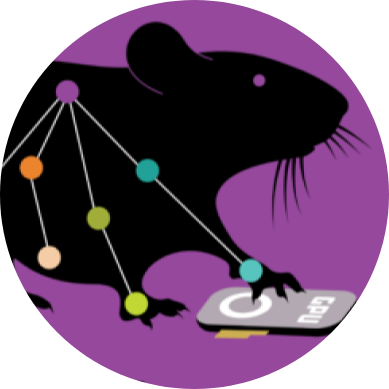A workshop for behavioural scientists on the use of DeepLabCut

As part of the effort to disseminate knowledge and skills across the Network and the community, we asked some of our GenerationResearch colleagues at the University of York to organise a workshop focused on data science and the use of the software DeepLabCutTM for animal behavioural analysis.

GenerationResearch provides authentic paid studentship positions across disciplines in a range of technical and research projects, widening access to all university students to foster inclusivity and diversity in answering the question: who will our next generation of scientists be?
The workshop was held at the University of York on the 8th of July, with the stated aim of providing an accessible introduction to data science and behavioural video analysis for animal research.
Ten delegates attended from the Haem, Cancer, Congenital Abnormalities, and MURIDAE clusters. Participants were introduced to the basics of Python programming and the use of DeepLabCut, an open-source Python package that uses deep neural networks to track and analyse animal behaviour from video datasets. This is particularly useful for animal behavioural studies.
The morning session was led by Dr Alastair Droop, Head of the Data Science Hub at the University of York, and covered foundational concepts such as principles of data science, with an emphasis on how machine learning and neural networks are transforming life-science research. It also included a hands-on, beginner-friendly session introducing Python programming tailored to researchers with no prior coding experience.
The afternoon sessions, led by Dr Claire Witham, from the Mary Lyon Centre at MRC Harwell, alongside Heather Brown and David Munglah, were split into two main blocks;
- A guided introduction to DeepLabCut and how it fits into behavioural analysis, including applications in home-cage monitoring.
- An interactive workshop, in which participants walked through a complete DeepLabCut workflow using a demo dataset obtained from a single mouse. This included:
- Creating a DeepLabCut project
- Creating a training set
- Training a neural network
- Evaluating model performance
- Analysing a novel video clip using the trained model
The day was designed with a flexible, drop-in format, allowing tendees to join whichever sessions best matched their interests and experience levels.
It was a very successful day with a very interactive programme and great participation and feedback from attendees.
One delegate said: ‘This was a really good session, I really enjoyed the explanation of the different features of DeepLabCut; it served as a really good primer for using different segmentation tools’
The workshop also demonstrates how GenerationResearch, which provided funding and a framework for the workshop organisers, Heather Brown and David Munglah to enrol in a Masters by Research course at the University of York, in collaboration with the Network’s Hub, the Mary Lyon Centre at MRC Harwell, can be a springboard to further activities and collaborations.
We hope to be able to organise this kind of workshop again in the future.